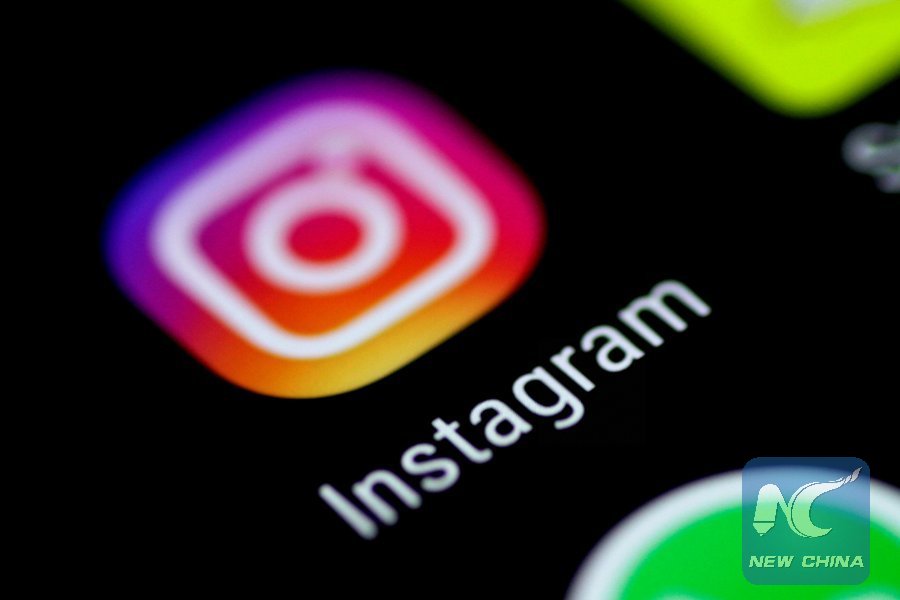
The Instagram application is seen on a phone screen August 3, 2017. (Xinhua/Reuters)
SAN FRANCISCO, Dec. 17 (Xinhua) -- U.S. photo-sharing network Instagram was a much more effective platform for an alleged Russian government-back agency to exert political influence during the 2016 U.S. general elections, a report commissioned by the U.S. Senate Intelligence Committee (SIC) said Monday.
The Russian Internet Research Agency (IRA) obtained far more user engagement on Instagram than Facebook in the 2016 U.S. elections, with about 184 million users clicking "Likes" on the Instagram platform compared to the figure of about 37.6 million on Facebook, said the SIC report in a detailed analysis of "state actors" activities on U.S. social media networks.
"Instagram was a significant front in the IRA's influence operation, something that Facebook executives appear to have avoided mentioning in Congressional testimony," said the report written by cybersecurity firm New Knowledge for the SIC, which was released Monday.
It criticized Russia for leveraging social media to wage "propaganda" operations and run a multi-year campaign "to manipulate and influence Americans, exploiting social and political divisions."
The Russian efforts reached 126 million people on Facebook and over 20 million users on Instagram, in addition to posting 10.4 million tweets on Twitter and uploading 1,000+ videos to YouTube, said the report.
The IRA created just 133 accounts on Instagram, and some of those had more than 100,000 followers, which released about 116,000 Instagram posts, the report said.
"Instagram engagement outperformed Facebook, which may indicate its strength as a tool in image-centric memetic (meme) warfare. Alternately, it is possible that the IRA's Instagram engagement was the result of click farms," the report wrote.
"Instagram was perhaps the most effective platform for the Internet Research Agency," the report concluded.
Russia has repeatedly denied it had interfered in the 2016 general elections by using U.S. social media networks such as Facebook and its subsidiary Instagram.
"We do not know ... how to place an advert on Facebook. We have never done this, and the Russian side has never been involved in it," a Russian spokesperson said last September, when Facebook announced removing 470 inauthentic accounts from its service.

